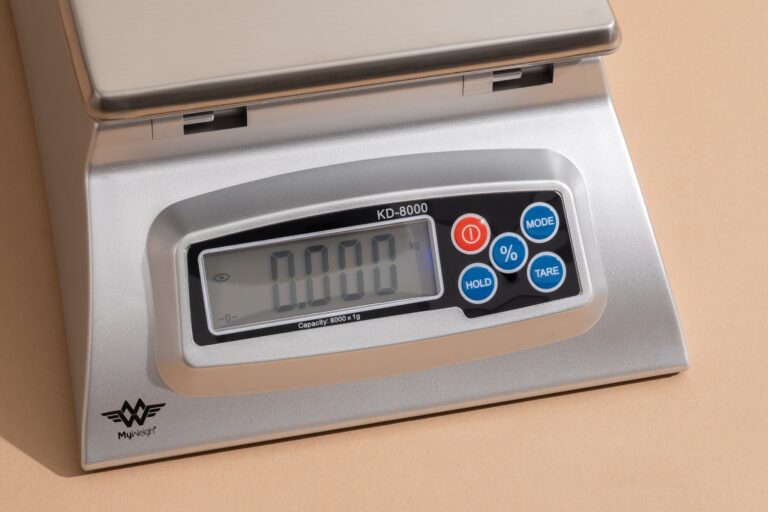The growing awareness of environmental issues and the need for sustainable living has significantly influenced the design and technology of modern kitchens. As the heart of the home, the kitchen is a primary area where resource consumption and waste generation occur. Fortunately, advances in smart technology offer numerous ways to create a more sustainable kitchen. This article explores the latest smart kitchen trends that contribute to sustainability, from energy-efficient appliances to waste management solutions.
Energy-Efficient Appliances

One of the most significant trends in sustainable kitchen design is the adoption of energy-efficient appliances. These appliances not only reduce energy consumption but also lower utility bills, making them a practical and eco-friendly choice.
Smart Refrigerators
Smart refrigerators are equipped with features that help conserve energy and reduce food waste. Many models include energy monitoring systems that provide real-time data on energy consumption, allowing homeowners to adjust settings for optimal efficiency. Eco modes and vacation settings can further reduce energy usage when the refrigerator is not in heavy use. Additionally, some smart refrigerators have built-in cameras and inventory management systems that help track food items and their expiration dates, reducing the likelihood of food spoilage.
Induction Cooktops
Induction cooktops are gaining popularity as an energy-efficient alternative to traditional gas and electric stoves. They use electromagnetic energy to directly heat cookware, resulting in faster cooking times and less energy waste. Induction cooktops are highly efficient because they transfer heat directly to the pot or pan, rather than heating the surrounding air. This technology not only conserves energy but also provides precise temperature control, reducing the risk of overcooking or burning food.
Smart Dishwashers
Modern smart dishwashers are designed to minimize water and energy usage. They come with sensors that detect the soil level of dishes and adjust the wash cycle accordingly, ensuring efficient use of water and detergent. Many smart dishwashers also feature eco-friendly modes that use less water and energy while still providing a thorough clean. Additionally, smart dishwashers can be programmed to run during off-peak hours when energy demand is lower, further contributing to energy savings.
Reducing Food Waste
Food waste is a significant environmental issue, and smart kitchen technology offers innovative solutions to help reduce it. From smart refrigerators to apps and devices for meal planning, these technologies make it easier to manage food inventory and minimize waste.
Smart Refrigerators with Inventory Management
Smart refrigerators with inventory management systems help keep track of the contents inside, alerting users when items are nearing their expiration dates. Some models even suggest recipes based on the ingredients available, encouraging the use of items before they spoil. This feature not only reduces food waste but also saves money by minimizing the need for last-minute grocery runs.
Apps and Devices for Meal Planning
There are numerous apps and devices designed to assist with meal planning and food preservation. These tools can suggest recipes based on the ingredients you have, create shopping lists, and even help plan meals for the week. By planning meals in advance and making efficient use of available ingredients, households can reduce food waste significantly. Some apps also provide tips on storing food properly to extend its shelf life.
Smart Composting Solutions
For food scraps that cannot be avoided, smart composting solutions offer an eco-friendly way to dispose of organic waste. Smart composters can process food scraps quickly and efficiently, turning them into compost that can be used in gardens or houseplants. Some systems even offer sensors and apps that provide real-time data on the composting process, making it easier for users to manage their compost and reduce landfill waste.
Water Conservation
Water conservation is another critical aspect of sustainability in the kitchen. Smart technology offers several ways to reduce water usage, from smart faucets to water-efficient dishwashers.
Smart Faucets
Smart faucets are equipped with sensors that allow for touchless operation, reducing water waste by automatically shutting off when not in use. Some models also offer flow control features, allowing users to adjust the water flow based on their needs. These faucets can be particularly useful in preventing water waste during tasks like washing hands or rinsing dishes. Additionally, smart faucets can be programmed with presets for specific tasks, ensuring that the right amount of water is used each time.
Water-Saving Dishwashers and Washing Machines
In addition to energy savings, many smart dishwashers and washing machines are designed to conserve water. They use advanced sensors to determine the optimal amount of water needed for each load, ensuring that no water is wasted. Some models also offer water recycling features, which reuse the water from the final rinse cycle for the next wash. These innovations help reduce water consumption and lower water bills, making them a smart choice for environmentally conscious households.
Leak Detection Sensors and Smart Water Meters
Leak detection sensors are a simple yet effective way to prevent water waste and damage. These sensors can be placed under sinks, near dishwashers, and around other water-using appliances to detect leaks early. When a leak is detected, the system can send an alert to the homeowner’s smartphone, allowing for quick action to prevent water damage and waste. Smart water meters can also help track water usage and identify areas where conservation efforts can be improved.
Sustainable Cooking Practices
Smart technology is also making it easier to adopt sustainable cooking practices. From energy-efficient cooking methods to smart cooking devices, these innovations help reduce the environmental impact of meal preparation.
Smart Ovens and Cooking Devices
Smart ovens and other cooking devices offer precision cooking capabilities, ensuring that food is cooked evenly and efficiently. These appliances often come with features like pre-programmed cooking modes, temperature sensors, and remote control via smartphone apps. By cooking food more precisely, these devices help reduce energy usage and minimize the risk of overcooking or burning, which can lead to food waste.
Sous-Vide Cooking
Sous-vide cooking involves sealing food in airtight bags and cooking it in a water bath at a precise, low temperature. This method is highly energy-efficient and results in perfectly cooked food with minimal waste. Many smart sous-vide devices allow for precise temperature control and can be operated remotely, making it easy to cook meals to perfection with minimal energy use.
Smart Cookers and Slow Cookers
Smart cookers and slow cookers are versatile and energy-efficient appliances that can be used for a wide range of dishes. These devices often feature programmable settings, allowing users to set cooking times and temperatures in advance. By cooking meals slowly over a longer period, these appliances use less energy than traditional ovens and stovetops. They also make it easy to prepare large batches of food, which can be portioned and stored for later use, reducing the need for additional cooking.
Eco-Friendly Materials and Design
Sustainability in the kitchen isn’t just about energy and water efficiency; it’s also about using eco-friendly materials and designs that reduce environmental impact.
Sustainable Materials for Smart Kitchen Gadgets
Many manufacturers are now using sustainable materials for smart kitchen gadgets and appliances. These materials include recycled plastics, biodegradable components, and sustainably sourced metals. By choosing products made from eco-friendly materials, consumers can reduce their carbon footprint and support environmentally responsible manufacturing practices.
Recycled and Biodegradable Components
In addition to using sustainable materials, some smart kitchen products are designed with recycled or biodegradable components. For example, some smart kitchen gadgets feature housing made from recycled plastic or components that can be easily recycled at the end of their life. These products help reduce waste and promote a circular economy, where materials are reused and recycled rather than discarded.
Smart Kitchen Designs
Smart kitchen designs can also contribute to sustainability by optimizing natural light and ventilation. For example, incorporating large windows and skylights into kitchen designs can reduce the need for artificial lighting during the day. Proper ventilation systems can help regulate temperature and humidity, reducing the need for energy-intensive air conditioning or heating.
Smart Home Integration for Sustainability
Integrating smart kitchen devices with other smart home systems can further enhance sustainability. This integration allows for centralized control and automation of various systems, making it easier to optimize resource use.
Integration with Smart Thermostats
Smart thermostats can be integrated with kitchen appliances and devices to optimize energy use. For example, a smart thermostat can adjust the kitchen temperature based on cooking activities, ensuring that the space is comfortable without wasting energy. These thermostats can also be programmed to maintain a specific temperature range, reducing energy consumption and costs.
Smart Lighting Systems
Smart lighting systems can be used to automate and optimize lighting in the kitchen. These systems allow for scheduling, dimming, and even color changes based on the time of day or the task at hand. For instance, brighter lighting can be set for cooking and food preparation, while softer lighting can be used for dining or relaxation. By automating lighting, these systems help reduce energy consumption and create a more comfortable and functional kitchen environment.
Home Energy Management Systems
Home energy management systems (HEMS) can provide a comprehensive view of energy usage throughout the home, including the kitchen. These systems monitor the energy consumption of various devices and appliances, allowing homeowners to identify areas where energy savings can be achieved. By integrating smart kitchen devices with HEMS, users can track and manage energy use more effectively, making informed decisions about reducing consumption and improving efficiency.
Supporting Local and Sustainable Food Choices
Smart kitchen technology can also support sustainable food choices by promoting local sourcing and reducing the carbon footprint associated with food production and transportation.
Apps and Devices for Local Sourcing
Several apps and devices help users source local and seasonal ingredients, supporting local farmers and reducing the environmental impact of long-distance food transportation. These tools can provide information on local farmers’ markets, seasonal produce availability, and even direct ordering from local farms. By choosing local and seasonal foods, consumers can enjoy fresher ingredients and support sustainable agriculture practices.
Smart Indoor Gardens and Hydroponics Systems
Smart indoor gardens and hydroponics systems allow users to grow fresh herbs, vegetables, and even small fruits at home. These systems are designed to be space-efficient and easy to use, often featuring automated watering and lighting systems. Growing food at home reduces the need for store-bought produce, which often involves significant packaging and transportation emissions. It also provides access to fresh, pesticide-free produce year-round.
Platforms for Reducing Carbon Footprint
Some smart kitchen platforms provide information and tips on reducing the carbon footprint of food choices. These platforms can suggest recipes that use low-carbon ingredients, provide information on the environmental impact of various foods, and offer tips for more sustainable eating habits. By making informed choices, consumers can reduce their environmental impact and contribute to a more sustainable food system.
Recycling and Waste Management
Effective recycling and waste management are essential components of a sustainable kitchen. Smart technology offers innovative solutions to make these processes more efficient and convenient.
Smart Recycling Bins
Smart recycling bins can help users sort and track their waste, ensuring that recyclable materials are properly separated from general waste. Some smart bins feature sensors and cameras that can identify the type of waste being disposed of and provide guidance on proper sorting. These systems can also track the volume of waste generated and provide data on recycling habits, helping households improve their recycling practices.
Apps and Devices for Recycling Information
Several apps and devices provide information on recycling and proper disposal of various materials. These tools can help users understand what can and cannot be recycled in their local area, provide tips for reducing waste, and even offer incentives for recycling. By making recycling more accessible and understandable, these technologies encourage more sustainable waste management practices.
Community Recycling and Composting Programs
Smart kitchen technology can also facilitate participation in community recycling and composting programs. For example, some apps provide information on local composting facilities, drop-off locations for recyclables, and schedules for community collection events. By participating in these programs, households can reduce their waste and support local efforts to manage resources sustainably.
Consumer Awareness and Education
Education and awareness are crucial for promoting sustainable practices in the kitchen. Smart kitchen devices and platforms can play a key role in providing information and encouraging mindful consumption.
Devices Providing Sustainability Tips
Many smart kitchen devices now come with features that provide sustainability tips and information. For example, some smart refrigerators offer suggestions for reducing energy use, while smart ovens may provide tips for more efficient cooking. These features help users make informed decisions and adopt more sustainable habits.
Apps and Platforms for Sustainable Cooking
Several apps and platforms focus on sustainable cooking and living, offering recipes, tips, and resources for eco-friendly practices. These tools can provide guidance on cooking with seasonal ingredients, reducing food waste, and minimizing energy use. By making sustainability accessible and actionable, these platforms empower users to make a positive impact in their daily lives.
Encouraging Mindful Consumption
Smart kitchen technology can also encourage mindful consumption by providing data and insights into resource use. For example, energy monitoring systems can show users how much electricity their appliances consume, while food tracking apps can highlight patterns of food waste. By raising awareness of these issues, smart kitchen devices can inspire users to adopt more sustainable practices.
Future Trends and Innovations
The field of smart kitchen technology is constantly evolving, with new innovations and trends emerging to support sustainability.
Emerging Technologies
Emerging technologies, such as AI-driven recipe recommendations and advanced sensors for food safety, are poised to further enhance sustainability in the kitchen. These technologies can provide personalized recommendations for reducing waste, optimizing energy use, and making eco-friendly food choices.
Predictions for the Future
As consumer demand for sustainable products continues to grow, we can expect to see even more innovations in smart kitchen technology. Future developments may include more advanced energy management systems, increased use of sustainable materials, and greater integration with other smart home systems.
The Role of Consumer Demand
Consumer demand plays a crucial role in driving the adoption of sustainable smart kitchen technologies. As more people prioritize eco-friendly products and practices, manufacturers are likely to respond with more sustainable options. By making informed choices and supporting sustainable brands, consumers can help shape the future of smart kitchen technology.
Conclusion
The integration of smart technology in kitchens offers a powerful tool for promoting sustainability. From energy-efficient appliances and water-saving devices to solutions for reducing food waste and encouraging sustainable cooking practices, smart kitchens provide a wide range of benefits for both the environment and consumers. As technology continues to advance, the potential for creating more sustainable, efficient, and eco-friendly kitchens will only grow. By staying informed and making thoughtful choices, households can play a significant role in fostering a more sustainable future.




